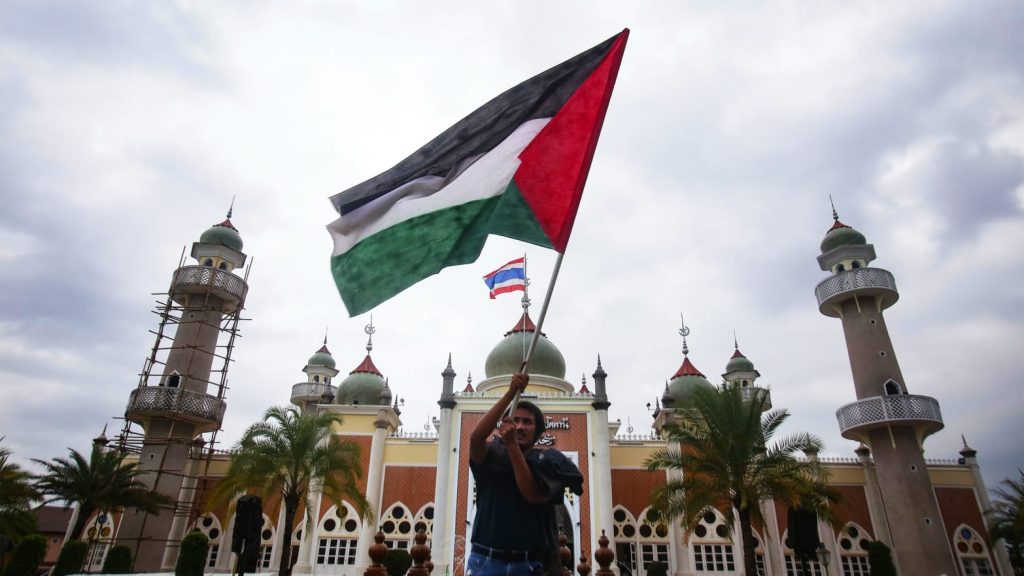The commander of the 4th Army in southern Thailand, is accusing several MP’s of breaking the law during a separatist meeting in the southern border region of Pattani earlier this month.
The southern army region commander, Lt Gen Santi Sakultanak, stated on Sunday that officers from the southern branch of the Internal Security Operations Command (ISOC) would soon file another complaint with police against more individuals, including some politicians.
He stated that the southern ISOC office was gathering evidence to support the further complaint.
According to Lt Gen Santi, military officers from the southern ISOC branch submitted the first complaint with Pattani province police on Friday last week. Threats to security and domestic order, as well as computer crime, were charged in the lawsuit.
“That is only a part of it,” he said, declining to divulge the number of defendants named in the first complaint.
“There will be another complaint soon, which will include a certain number of the accused, including politicians.” Evidence and witnesses are being gathered. “I confirm that everyone will face action based on the evidence,” said the 4th Army chief.
According to sources, the first complaint targeted five people: a forum commentator from Narathiwat province, another Narathiwat native, a Pattani native who is a key member of the Pelajar Bangsa (national students) movement, a Narathiwat native from Sungai Padi district, and a Songkhla native from Saba Yoi district.
Activists had previously campaigned for a national vote on the formation of an autonomous, Muslim “Patani State” in the South. Authorities claimed that the referendum plan violated the constitution and jeopardised the nation’s territorial integrity and security.
On June 7, a seminar at Prince of Songkla University’s Pattani campus saw the formation of Pelajar Bangsa, a youth organisation comprising students from the three southernmost provinces.
The organisation was regarded as the most recent incarnation of the Patani Students and Youth Federation (PerMas), which was disbanded in November 2021.
“Self-Determination and Patani Peace” was the title of the seminar.
Worawit Baru, deputy leader of the Prachachat Party and MP for Pattani, and Hakim Pongtigor, deputy secretary-general of the FAIR Party, spoke during the seminar.
The two parties are members of a potential coalition led by the Move Forward Party to create the next administration.
Participants were given voting papers at the seminar and asked to vote for a referendum on an independent Pattani state.
Separatist movement in southern Thailand
The separatist movement in southern Thailand refers to the ongoing conflict in the southernmost provinces of Thailand, namely Pattani, Yala, Narathiwat, and parts of Songkhla. The region is predominantly Muslim, in contrast to the majority Buddhist population in the rest of Thailand. The movement seeks greater autonomy or independence for the region due to perceived political, economic, and cultural grievances.
The conflict dates back several decades, but its intensity has increased since 2004. The insurgents, who identify themselves as Malay-Muslim nationalists, have engaged in acts of violence such as bombings, assassinations, and attacks on security forces, civilians, and educational institutions. The Thai government has responded with a combination of military operations, counterinsurgency measures, and attempts at dialogue and development projects.
The exact goals and structure of the separatist groups are not well-defined, and there is no unified leadership or organization. Different factions with varying objectives and levels of radicalization are believed to be involved, ranging from those seeking greater autonomy within Thailand to those advocating for outright independence.
The conflict has had a significant impact on the daily lives of people in the region, leading to a heavy military presence, restrictions on civil liberties, and a climate of fear and mistrust. Efforts to resolve the conflict have been challenging, and peace negotiations have had limited success thus far.
It’s important to note that the information provided here is based on the knowledge available up until September 2021, and the situation may have evolved since then. For the most up-to-date and accurate information, it’s recommended to refer to news sources and scholarly articles.





